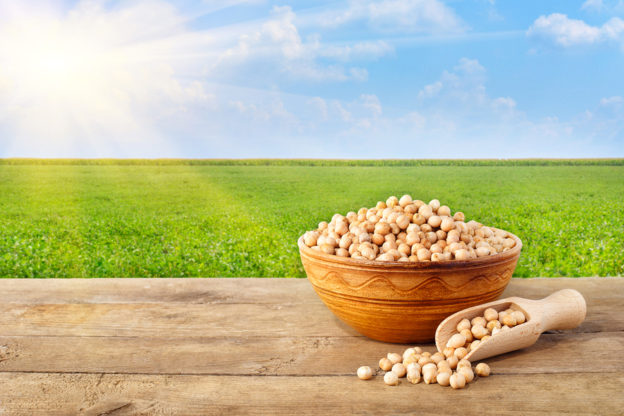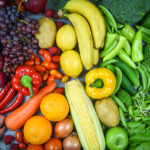By David Blyweiss, M.D., Advanced Natural Wellness
April 12, 2017
- Beans get a bad rap, but they shouldn’t
- Plus, they really ARE good for your heart
- Here are some easy (and tasty!) ways to eat more beans
Beans get a bad rap. They tend to make some people gassy. And if the only ones you’ve ever tasted came out of a can, you probably put your fork down after the first bite. Canned beans taste horrible.
But that doesn’t mean you should give up on beans. They’re one of the healthiest foods you can eat. And when you prepare them correctly, they can be very tasty. Plus, they’re loaded with nutrition.
Whether its black beans, pintos, great northern or navy beans, they’re all high in protein and jam-packed with nutrients like potassium, magnesium, folate, iron and zinc.
They’re also a great source of soluble fiber, which is sorely lacking in today’s American diet. (These days everyone’s rushing to bulk up on non-soluble fiber… the kind you get in most prepared breakfast cereals and high fiber snack bars.)
Let me show you what three or four cups of beans each week can do for you.
Open your arteries, improve blood flow for a new health miracle...
Did you know your circulatory system has over 60,000 miles of arteries, veins and other blood vessels, if stretched end to end?
But as you age, your blood vessels undergo changes, which may cause them to stiffen, thicken and get clogged.
GOOD NEWS! Doctors have now identified a “Miracle Molecule” inside your arteries that helps OPEN your arteries and IMPROVE blood flow.
It’s what Dr. Valentin Fuster calls it, "One of the most important discoveries in the history of cardiovascular medicine."To you, that means...
- Healthy blood pressure
- Sharper mind and memory
- Skyrocketing energy and muscular strength
- Increased pleasure and passion in the bedroom
- Improved circulation to every cell and organ in your body
Go here to discover a new natural way to significantly boost the levels of this miracle molecule in YOUR body NOW!
They Really ARE Good for Your Heart… And Much, Much More!
People who eat the most beans have much lower levels of certain inflammatory markers compared to people who eat the least.
In particular, their C-reactive protein (CRP) and interleukin-6 (IL-6) levels are about 40% lower than their non-bean-eating counterparts.
Now, you’ve probably heard about CRP.
This protein is a strong predictor of a first-time heart attack, even when cholesterol levels are normal. It increases the risk of almost all types of cancer – and reduces the chance of a positive outcome. People with dementia have higher CRP levels than those without dementia. And Alzheimer’s patients have the highest levels of all.
IL-6 also has links to heart disease, cancer, Alzheimer’s and other inflammatory diseases.
So the ability to eat your way to lower levels of these inflammatory markers is great news for your health.
The World's Quickest Solution for Ending Prostate and Urinary Misery
This has recently been revealed to be one of the only real breakthroughs in prostate health.
The seeds of a strange fruit (sometimes called "Chinese Apples") hold powerful phytonutrients that are a revolution in prostate health.
In fact, UCLA and Veterans Administration research have now proved this to be true.
Not only that, but it may be the worlds quickest solution for ending prostate misery.
Simply stated, these phytonutrients represent a huge step beyond beta sitosterol, saw palmetto, and other phytosterols alone.
Simply click HERE if you want to have fast prostate relief...restful, uninterrupted sleep...no more constant "urges to go"...enhanced virility...and optimal prostate support for life.
Beans are good for your sugar metabolism, too. They’re considered “slow-carbs”. This means they’re absorbed slowly by your body, likely due to their high fiber content. This slow absorption helps prevent glucose and insulin spikes.
Case in point: When diabetics replace other high fiber carbs like whole grains with beans, they experience better glucose control, a lower risk of heart disease and a greater reduction in systolic blood pressure.
But that’s not all.
Beans are very filling. So you might be inclined to snack less throughout the day and eat smaller meals.
Add that together with better blood sugar control and it may be why regular bean-eaters have lower body weight and a smaller waist size. They’re also less likely to gain weight or become obese.
Easy Ways to Eat More Beans
One of the best ways to get more beans in your diet is to make a pot of bean soup. You can choose your favorite dried bean – or buy a mix of 15 different beans.
Add in some chopped celery, onion, carrots and garlic and cook as directed on the package. For extra flavor, simmer them in a healthy organic chicken stock instead of water… or add some tomatoes, herbs and spices once the beans are tender.
If bean soup isn’t your thing, there are other ways to get more of them in your diet.
My favorite bean dish is hummus. It’s nothing more than smashed chickpeas with a few other healthy ingredients that add a burst of flavor. Roasted chickpeas sprinkled with spices are great, too.
Add beans to your soups and salads. Make bean dips, bean casseroles and bean salsa. Smash them up and use them as a spread in your lunch wraps.
There are plenty of tasty ways to eat beans. And while they may produce gas when you initially add them to your diet, once you start eating them regularly you’ll find that this unpleasant side effect disappears altogether…or you can use a product like Beano enzyme before you eat.
SOURCES:
Esmaillzadeh A, et al. Legume consumption is inversely associated with serum concentrations of adhesion molecules and inflammatory biomarkers among Iranian women. J Nutr. 2012 Feb;142(2):334-9.
Ridker PM. Cardiology Patient Page. C-reactive protein: a simple test to help predict risk of heart attack and stroke. Circulation. 2003 Sep 23;108(12):e81-5.
Allin KH, et al. Elevated C-reactive protein in the diagnosis, prognosis, and cause of cancer. Crit Rev Clin Lab Sci. 2011 Jul-Aug;48(4):155-70.
Mancinella A, et al. Is there a relationship between high C-reactive protein (CRP) levels and dementia? Arch Gerontol Geriatr. 2009;49 Suppl 1:185-94.
Jenkins DJ, et al. Effect of legumes as part of a low glycemic index diet on glycemic control and cardiovascular risk factors in type 2 diabetes mellitus: a randomized controlled trial. Arch Intern Med. 2012 Nov 26;172(21):1653-60.
Papanikolaou Y, et al. Bean consumption is associated with greater nutrient intake, reduced systolic blood pressure, lower body weight, and a smaller waist circumference in adults: results from the National Health and Nutrition Examination Survey 1999-2002. J Am Coll Nutr. 2008 Oct;27(5):569-76.







